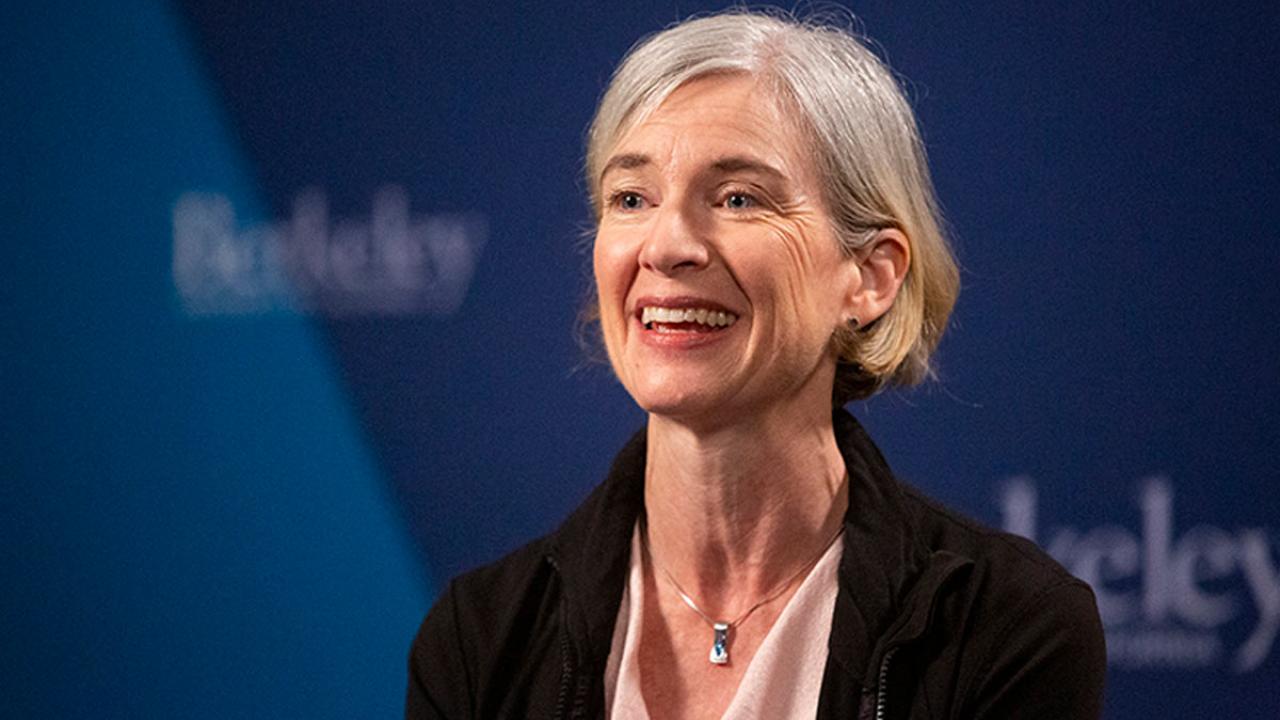The Office of Research and the School of Medicine had planned to introduce their Oct. 30 speaking guest as a professor and the founder and director of the Innovative Genomics Institute at UC Berkeley, and a CRISPR pioneer.
AT A GLANCE
- WHAT: A presentation by 2020 Nobel Laureate Jennifer Doudna in UC Davis’ Distinguished Speaker Series in Research and Innovation
- WHEN: 10:30-11:45 a.m. Friday, Oct. 30
- ADMISSION: Free and open to the public
- REGISTRATION REQUIRED for this online program.
Since being booked for the Distinguished Speaker Series in Research and Innovation, however, Jennifer Doudna has added a new title: Nobel laureate.
She and Emmanuelle Charpentier, director of the Max Planck Institute for Infection Biology, won the Nobel Prize in chemistry Oct. 7 for their co-development of CRISPR-Cas9, a genome editing tool that has revolutionized biomedicine and agriculture.
What’s CRISPR? Jennifer Doudna explains in a Radiolab podcast.
Doudna became the first woman on the UC Berkeley faculty to win a Nobel, and she and Charpentier are the first women to share a Nobel in the sciences.
Doudna’s topic for her UC Davis talk is “CRISPR and Coronavirus.”
UC Davis Health’s Ralph Green, distinguished professor in the Department of Pathology and Laboratory Medicine, and medical director of UC Davis Diagnostics, recently collaborated with Doudna and others on a project to set up COVID-19 testing for UC Berkeley and the surrounding community — and Green is helping with a similar project at UC Davis.
“I had the good fortune to get to know Jennifer Doudna through my interaction with her group when they turned their skills and knowledge to setting up, at remarkable speed, a pop-up, PCR-based test for SARS-CoV-2 during the early days of the COVID-19 pandemic when the country was scrambling to meet the need for more testing,” Green said.
“I have to say that it has been a singular pleasure and privilege for me to interact with Jennifer Doudna and her colleagues.”
CRISPR-Cas9 genetic engineering technology enables scientists to change or remove genes quickly and with great precision. Labs worldwide have redirected their research programs to incorporate this new tool, creating a CRISPR revolution with huge implications across biology and medicine.
Doudna is a leader in public discussion of the ethical implications of genome editing for human biology and societies. She advocates for thoughtful approaches to the development of policies around the use of CRISPR-Cas9.
Media Resources
Dateline Staff, 530-752-6556, dateline@ucdavis.edu
